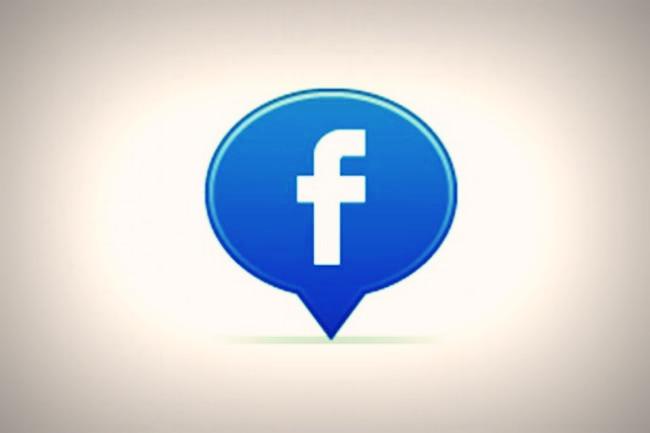
Facebook is rolling out yet another update in order to compete with Twitter’s hold on live conversations. “Starting today, selected news and organizations can begin to integrate Facebook conversations into their broadcast or coverage by displaying public posts of real-time activity about any given topic,” says Facebook’s announcement. “For example, CNN’s New Day can now easily incorporate what people on Facebook have to say about the latest, breaking news event during their show.”

“Partners can also use these tools to show the number of Facebook posts that mention a specific word over a period of time, including a demographic breakdown for the people talking about that topic,” the company explains.
Twitter has established itself as the ideal tool for real-time conversations, something that Facebook continues to struggle with – and to some degree, that’s Facebook’s own fault. The News Feed algorithm doesn’t operate in real-time, instead weighing various factors like how many ads you’ve seen today, what friends you most often interact with, and numbers of “likes” and comments. It’s a frustrating system that is the source of many user complaints, and it hurts Facebook’s desire to be a news source and a news maker.
However, there is one element that gives Facebook some edge over Twitter: Identity. Facebook has made “real identities” its most valuable currency. Most social networks allow you to be anonymous or at least obscure many personal details. But Facebook makes it interesting and worthwhile to use your real name and age and location in order to connect with people; this means that the partners leveraging Facebook conversations will be able to discover more about the users involved in them.
“For instance,” says Facebook, “now every week during the ‘What’s Trending’ segment of The Today Show, NBC can easily include how many people on Facebook talked about a popular subject, where it’s getting the most buzz, whether it’s most popular among males or females, and with which age group.”
Of course, what Facebook has to do in order for media partners to get this demographic information is make sure people are having real-time conversations. The recent reveal that the Facebook hashtag is essentially negatively affected brand Pages doesn’t make a very convincing case for this. More anecdotally, if you take a quick poll of the hashtags you’re seeing in your News Feed, there are two things that will make them difficult for media outlets to leverage:
First, most of your friends’ updates, hashtagged or not, don’t show that public icon. They are using some sort of setting that keeps their updates semi-private. This means those conversations aren’t accessible to non-friends and searching for a hashtag they’re using won’t surface their posts and comments for strangers. This is part of the problem with embeds too, and it’s a user attitude thing. It will be hard for Facebook to break our habits; Twitter is public, Facebook is (comparatively) personal. Getting us to change how we use the social network will be the hardest hurdle for Facebook to tackle.

Second, updates about world or national events aren’t the ones most often bearing hashtags. Most are sarcastically used; short quips with jokey hashtags. Not many media outlets are looking for #funwithofficesupplies news.
At the moment, this tool remains highly experimental for Facebook – and for its limited partner list (right now, the feature is available to Buzzfeed, CNN, NBC’s Today Show, BSkyB, Slate, and Mass Relevance.) Right now there isn’t a plan to roll these out publicly; we’ve reached out to Facebook regarding this and will update with comment when we get a response.
Regardless, the battle for real-time will continue to be a difficult one for Facebook to wage. But it’s a valuable market, and you can be certain Facebook isn’t going to go down without a fight.


